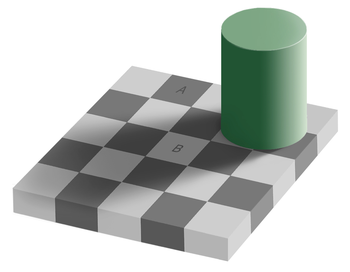- Duhem–Quine thesis
-
The Duhem–Quine thesis (also called the Duhem–Quine problem, after Pierre Duhem and Willard Van Orman Quine) is that it is impossible to test a scientific hypothesis in isolation, because an empirical test of the hypothesis requires one or more background assumptions (also called auxiliary assumptions or auxiliary hypotheses). The hypothesis in question is by itself incapable of making predictions. Instead, the consequences of the hypothesis typically rest on background assumptions from which to derive predictions. This prevents a theory from becoming conclusively falsified through empirical means if the background assumptions are not proven (since background assumptions sometimes involve one or more scientific theories). For instance, to "disprove" the idea that the Earth is in motion, some people noted that birds did not get thrown off into the sky whenever they let go of a tree branch. That datum is no longer accepted as empirical evidence that the Earth is not moving because we have adopted a different background system of physics that allows us to make different predictions.
Although a bundle of theories (i.e. a theory and its background assumptions) as a whole can be tested against the empirical world and be falsified if it fails the test, the Duhem–Quine thesis says it is impossible to isolate a single hypothesis in the bundle. One solution to the dilemma thus facing scientists is that when we have rational reasons to accept the background assumptions as true (e.g. scientific theories via evidence) we will have rational—albeit nonconclusive—reasons for thinking that the theory tested is probably wrong if the empirical test fails.
Contents
Pierre Duhem
As popular as the Duhem–Quine thesis may be in philosophy of science, in reality Pierre Duhem and Willard Van Orman Quine stated very different theses. Duhem believed that only in the field of physics can a single individual hypothesis not be isolated for testing. He says in no uncertain terms that experimental theory in physics is not the same as in fields like physiology and certain branches of chemistry. Also, Duhem's conception of "theoretical group" has its limits, since he states that not all concepts are connected to each other logically. He did not include at all a priori disciplines such as logic and mathematics within the theoretical groups in physics, since they cannot be tested.
Willard Van Orman Quine
Quine, on the other hand, in "Two Dogmas of Empiricism", presents a much stronger version of underdetermination in science. His theoretical group embraces all of human knowledge, including mathematics and logic. He contemplated the entirety of human knowledge as being one unit of empirical significance. Hence all our knowledge, for Quine, would be epistemologically no different from ancient Greek gods, which were posited in order to account for experience. Quine even believed that logic and mathematics can also be revised in light of experience, and presented quantum logic as evidence for this. Years later he retracted this position; in his book Philosophy of Logic, he said that to revise logic would be essentially "changing the subject". In classic logic, connectives are defined according to truth values. The connectives in a multi-valued logic, however, have a different meaning than those of classic logic. As for quantum logic, it is not even a logic based on truth values, so the logical connectives lose the original meaning of classic logic. Quine also notes that deviant logics usually lack the simplicity of classic logic, and are not so fruitful.
References
- Gillies, Donald. "The Duhem Thesis and the Quine Thesis", in Martin Curd and J.A. Cover ed. Philosophy of Science: The Central Issues, (New York: Norton, 1998), 302-319. This paper is extracted from Donald Gillies Philosophy of Science in the Twentieth Century (Oxford: Blackwell Publishers, 1993). The third chapter of the Norton Anthology also contains relevant excerpts from Duhem's work, The Aim and Structure of Physical Theory, and reprints Quine's "Two Dogmas of Empiricism" which are important works for Duhem and Quine's thought on this topic.
Notes
Wikimedia Foundation. 2010.

